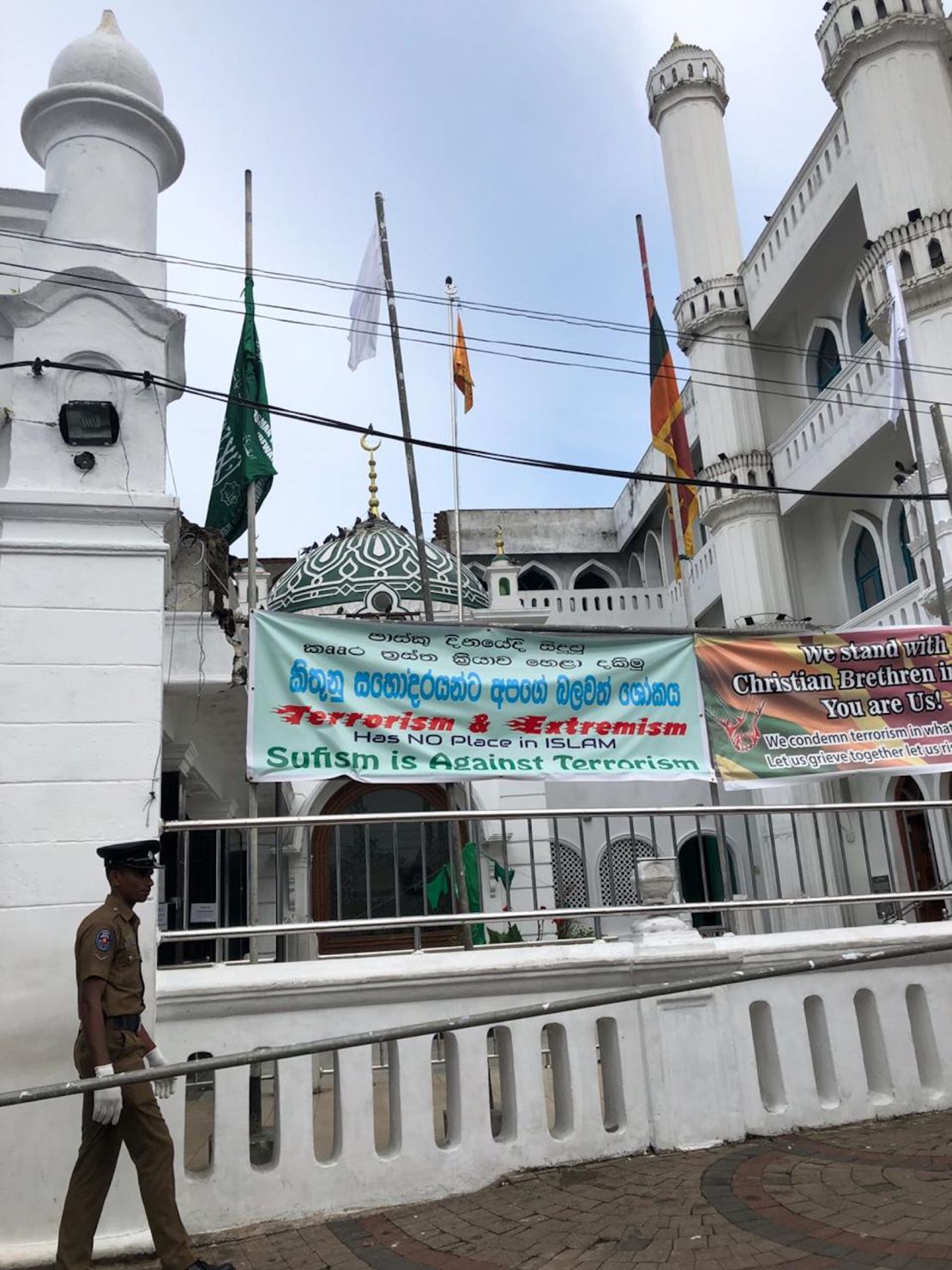The ongoing hunt for terrorist suspects in Sri Lanka, and fears of reprisal attacks, have cast a shadow over the country still reeling from the devastation of the Easter Sunday bombings.
Sri Lankans of different faiths were being urged to pray privately amid fears of further attacks Friday, as the country’s prime minister told CNN that security forces were also working to pick up any terrorist “sleepers” – who could activate to initiate another round of attacks.
As Sri Lanka enters its first weekend of religious services following Sunday’s mass bombings, Catholic services across Colombo have been suspended and the government urged Muslims not to gather publicly for the Friday prayer service known as the Jum’ah prayer.
Driving through Colombo, a CNN reporter observed that shops that would normally be open at midday had been shuttered, and noted that security warnings broadcast on television and radio had spread fear.
According to a revised death toll, 253 people, including many worshipers attending Easter Mass services, died in the coordinated attacks.
Call for prayers
Ahead of Friday’s dawn prayers, Sri Lanka’s Minister of Postal Services & Muslim Religious Affairs Mohamed Hashim Abdul issued a statement labeled “very urgent” on Thursday asking Muslims not to gather publicly for the congregational Jum’ah prayer.
The minister’s statement called for prayers to end the actions of the “inhuman terrorist murderers,” and offers condolences to the victims targeted in churches and luxury hotels, saying that the Muslim community “stand(s) with Christian brothers and sisters during their times of grief.”
However, some mosques defied the call, opening for the midday prayers.

Catholic services across Colombo have also been suspended – until April 29 – because of security concerns, according to Fr. Edmond Tillekeratne, media director of the Archdiocese.
The decision, which will see Catholic churches in the capital shuttered for services this Sunday, was made at the direction of Archbishop of Colombo, Cardinal Malcolm Ranjith.
Both Christianity and Islam are minority religions in Sri Lanka, each accounting for under 10% of the total population. According to census data, the vast majority of Sri Lankans identify as Buddhist.

Easter Sunday attacks: The latest
- Sri Lanka bombing suspects may still be on the run, according to police.
- The attacks could deal a body blow to one of Asia’s most fragile economies, an economist says. At least 39 of those killed in the explosions were identified as tourists. The death toll from the Easter Sunday blasts in Sri Lanka has been significantly downgraded – to 253 from 359 – because many of the bodies were severely damaged or in parts, the Health Ministry said.
- President Maithripala Sirisena said a ban on social media, which the government had hoped to lift, would remain in place due to “a lot of wrong information shared” until he meets “the heads of these social media platforms.” He said he “may ban it completely if (dissemination of false information) is not controlled.”
- Defense Secretary Hemasiri Fernando submitted his resignation, after it emerged that intelligence services ignored repeated warnings ahead of the attacks.
Arrests continue
Sri Lankan authorities are currently searching for “sleepers” – potential terrorists who could activate to initiate another round of attacks – Sri Lanka’s Prime Minister Ranil Wickremesinghe told CNN on Thursday.
“Police and security forces are rounding up those involved, but they’re also rounding up the sleepers, those used on second and third rounds (of attacks),” he said.
“The danger has come down drastically, (but) we do have to pick up some more sleepers, which we will do in the next few days.”
He said security services were taking steps to ensure that no potential terrorist was on the loose, and said that a second wave of attacks was not likely “now” but a concern in coming months.
“It is a precaution that we are taking, we want to be sure we have everyone in,” he said in the sit-down interview.
“They are worried that one or two could get into a church – (even) one person can do a lot of damage.”
National Tawheed Jamath (NTJ), a domestic extremist group, has been identified as the perpetrator of the Easter Sunday bombings, but has not claimed the attacks. While the terror group ISIS has claimed responsibility for the attacks, that link has not been proven.
Travel advisories amid heightened threat
Concerns over further attacks have moved several counties to warn their citizens to avoid the Indian Ocean nation.
The UK and Israel were the latest countries to issue travel advice, with Israel citing a “high concrete threat.”
Israel’s Counter-Terrorism Bureau issued a travel warning for Sri Lanka on Thursday, raising the threat level to its second-highest, and advising travelers already in the country to leave. The warning came after consultations with security and foreign ministry officials, according to a statement from the Counter-Terrorism Bureau.
The UK’s Thursday announcement advised against “all but essential travel to Sri Lanka, due to the current evolving security situation.”
They join the US, China, South Korea and Australia in issuing advisories amid ongoing threats to travelers’ well-being in Sri Lanka.





